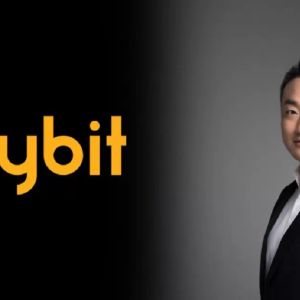The cryptocurrency world, always at the forefront of technological and ethical discussions, is now closely watching a tragic development in the realm of Artificial Intelligence. The death of Suchir Balaji, the OpenAI whistleblower who bravely exposed alleged copyright infringements by the AI giant, has been officially ruled a suicide. This shocking revelation, confirmed by a San Francisco autopsy report, arrives amidst swirling speculations and intense debates about AI ethics and corporate accountability, themes that resonate deeply with the crypto community’s values of transparency and decentralization. The Tragic Death of OpenAI Whistleblower Suchir Balaji Suchir Balaji, a 26-year-old former OpenAI employee, became a central figure in a growing storm of controversy surrounding OpenAI’s AI model training practices. His accusations of copyright infringement against OpenAI, made public in October, sent ripples through the tech world and beyond. Balaji provided crucial documents to The New York Times, identifying him as a key source in their lawsuit against OpenAI. His untimely death on November 26th, initially shrouded in mystery, has now been officially declared a suicide autopsy by the San Francisco County Medical Examiner. Here’s a timeline of events leading to this tragic conclusion: October 2024: Suchir Balaji publicly accuses OpenAI of illegally using copyrighted material to train its AI models. He shares information with The New York Times. November 26, 2024: Balaji is found dead in his San Francisco apartment. Initial reports are vague, leading to online speculation. February 15, 2025: The San Francisco County Medical Examiner releases an autopsy report officially ruling Balaji’s death as suicide by self-inflicted gunshot. This definitive ruling, while bringing closure to the official investigation, does little to quell the larger questions surrounding AI ethics and the immense power wielded by tech corporations like OpenAI. Why Did the Suicide Autopsy Spark Controversy? Balaji’s sudden death, occurring so soon after his explosive revelations against OpenAI, understandably fueled suspicion and conspiracy theories. His family initially questioned the circumstances, adding to the online speculation. High-profile figures like Elon Musk and Tucker Carlson weighed in, and Congressman Ro Khanna even called for a “full and transparent investigation.” Several factors contributed to the heightened scrutiny: Timing of Death: Balaji’s death occurred shortly after he became a prominent whistleblower, raising immediate red flags for many. High Stakes Accusations: His allegations of copyright infringement struck at the heart of OpenAI’s operational ethics and legal standing, making him a potentially targeted individual in the eyes of some. Powerful Opponent: OpenAI, backed by massive resources and influence, represents a formidable adversary, further fueling concerns about potential retaliation against whistleblowers. Broader Context of AI Ethics: The case unfolded against a backdrop of increasing anxiety about the ethical implications of rapidly advancing AI technologies and the lack of regulatory oversight. Despite the autopsy report, the unease remains. The crypto community, familiar with the battles for decentralization and transparency, understands the risks faced by individuals who challenge powerful centralized entities. The question lingers: Does this suicide ruling truly disentangle the complex web of AI ethics , corporate accountability, and the vulnerability of whistleblowers in Silicon Valley? Copyright Infringement Claims: What Balaji Unveiled At the heart of this tragic story are Balaji’s claims of copyright infringement against OpenAI. He alleged that the tech giant illegally used copyrighted material – potentially vast amounts of text, code, images, and other creative works – to train its large language models (LLMs). This accusation aligns with a growing wave of lawsuits from publishers, artists, and copyright holders who argue that their intellectual property has been unlawfully exploited to fuel the AI revolution. The implications of these claims are significant: Aspect Implication Legal Ramifications If proven true, OpenAI could face massive legal challenges, financial penalties, and potential restructuring of its AI training methods. Ethical Concerns Using copyrighted material without permission raises serious ethical questions about fair use, intellectual property rights, and the moral obligations of AI developers. Industry Impact A successful lawsuit could set a precedent, forcing other AI companies to re-evaluate their training data sources and potentially impacting the pace and direction of AI development. Balaji’s revelations, now tragically intertwined with his death, have amplified the urgency of addressing these critical issues within the AI industry. The debate over copyright infringement in AI training is far from over, and Balaji’s sacrifice serves as a stark reminder of the human cost associated with these technological battles. Moving Forward: Accountability and Transparency in the AI Age The conclusion of the investigation into Suchir Balaji’s death, while providing answers, leaves behind a profound sense of loss and a renewed call for action. For the cryptocurrency community and beyond, this case underscores the critical need for greater accountability and transparency within the rapidly evolving AI landscape. Here are some key takeaways and actionable insights: Protect Whistleblowers: Stronger legal protections and societal support systems are crucial for individuals who dare to expose wrongdoing within powerful tech corporations. Demand Corporate Accountability: Tech companies, especially those developing transformative technologies like AI, must be held to the highest ethical standards and be transparent about their practices. Promote Ethical AI Development: The development and deployment of AI must be guided by ethical principles that prioritize fairness, transparency, and respect for human rights and intellectual property. Foster Open Dialogue: Ongoing public discourse and critical examination of AI ethics are essential to navigate the complex challenges and opportunities presented by this technology. Suchir Balaji’s story is a stark reminder that the pursuit of technological advancement must not come at the expense of ethical considerations and human lives. His legacy should inspire a renewed commitment to building a more responsible and accountable AI future. To learn more about the latest AI ethics trends, explore our article on key developments shaping AI institutional adoption.



















